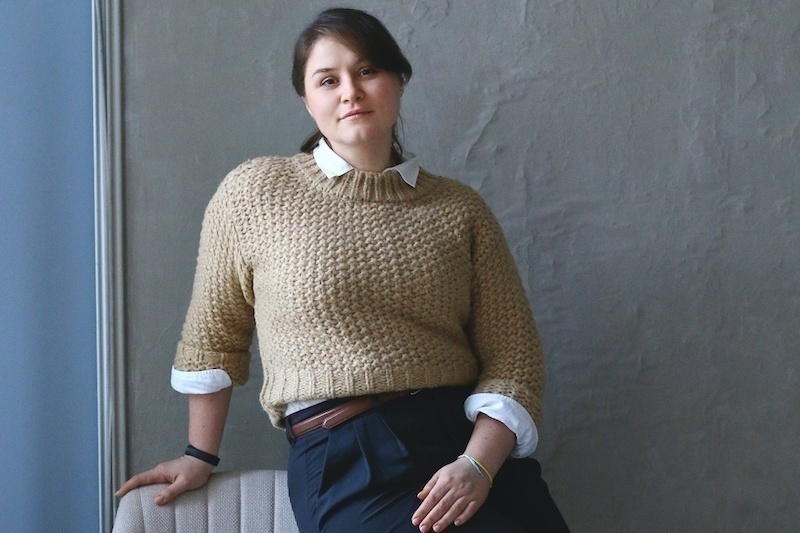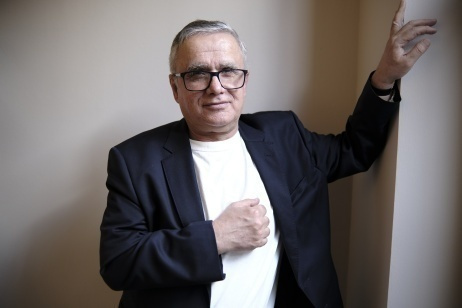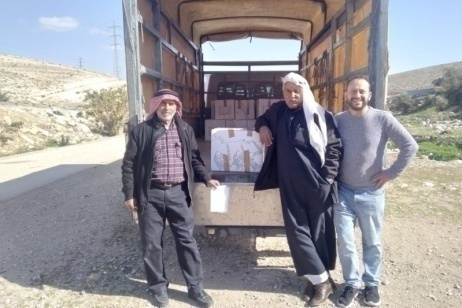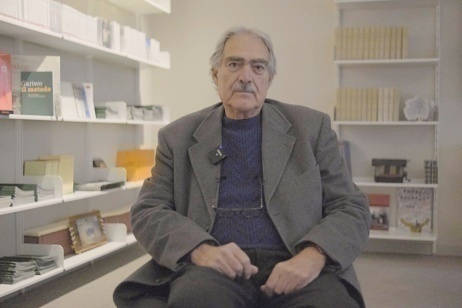When the protests against the previous regime had started in Maidan square in November 2013 Oleksandra Romantsova was starting her professional career in the international bank field. As the demonstrations were increasing and the repression was becoming more violent, the young girl decided to do something more than just demonstrating in squares.
Once, Oleksandra witnessed a brutal aggression made by the police against some students, hence she decided to start volunteering at the NGO Center for Civil Liberties.
Initially, she worked there in the call center, then becoming managing director. When the war started in Ukraine in 2014, she quit her job and dedicated herself to the promotion of peace and human rights. Last year, 38-year-old Romantsova was awarded the Nobel Peace Prize for her activism and achievements.
“The defense of human rights is my system of values”, she affirmed, while explaining how she had experienced that by talking to several activists arrested and abused during the protests.
“Those people were fighting for freedom and for our country's European path,” Romantsova explained, remembering that, on the night of February 21, 2014 - the day when former Ukrainian president Viktor Yanukovych was deposed - she was so tired after days of protests from not being able to stay awake.
Soon after that, Oleksandra Romantsova won a United Nations call for documenting war crimes. Alongside her organization team, she spent the following three years in Crimea and in the Republics of Donetsk and Lugansk, with the aim of investigating on several cases of kidnapping, murder and torture against the local population. She also interviewed victims and witnesses of war crimes and visited former places of torture and detention camps. Subsequently, those testimonies and atrocities have been shown to European politicians. However, Oleksandra knew that it was not enough. She saw the consequences of the fights in the city of Sloviansk, located in the Republic of Donetsk, that was besieged by pro-Russian forces.
“We had the luck of not stepping on a landmine with our car. At that time, we were not expert on how to move in war-zones yet”, Oleksandra told. Later, she interacted with a Croatian non-governmental organization, called “Documenta: centre for dealing with the past”. Along with the staff of this remembrance centre, Oleksandra visited the places where the war crimes perpetrated in the former Jugoslavia during the 90s had taken place, in order to learn from them how to document war crimes.
“First they brought me to Vukovar. I remember an old man describing me in details what had happened there thirty years before. A crime can never be forgotten”, Romentsova affirmed.
Once she returned from the Balkans, she established a school for human rights and democracy in Kyiv, in which she taught journalists how to write and investigate. She also taught the fundamentals of human rights to other participants who had shown interest, such as municipals, officials or clerics. During these war years, she often found herself in dangerous situations while collecting testimonies. She was surrounded by traumatized people who needed help. For her, the most important thing was to give each victim the possibility of hoping that, after war ends, justice will be done.
“I am aware that justice doesn't always arrive on time for all criminals. An example might be what happened in the former Jugoslavia. However, even if the legal process can be long, it is important that all war criminals will be condemned for the crimes they committed”.
When Russia invaded Ukraine on February 24th 2022, Oleksandra Matviychuk, the founder of the center, and other six colleagues, decided to stay in Kyiv. During the first year of war, they collected 33.000 potential cases of human rights’ violation, in which are included war crimes, crimes against humanity, crimes of aggression, and genocide.
Last year, in November, the Center for Civil Liberties was awarded the Nobel Peace Prize. The prize was also awarded to the Russian association Memorial and to the Belarusian human rights’ activist Ales Bialiatski, who is currently under arrest in his country. The news of this prize, awarded to both a Russian and a Belarusian organization at the same time, was not well received in Ukraine. One of the advisers to Ukraine president, Mykhailo Podolyak, wrote on Twitter: "It's a strange idea of peace when two countries attack another." “On the contrary, in my opinion, it’s important to share this award with the Belarusian activist Bialiatski and the Russian association Memorial”, Romantsova said. She also added that people who received the Nobel for their struggle for human rights do not represent the regimes of their home country, but their society.
Even though truth is one of the first things to die in a war, Romantsova believes that fighting for justice and truth is never vain. She also believes in the power of the her society, which has learnt - after Maidan revolution - that human rights belong to people and nobody can take them away from Ukrainian people, neither the regime of Vladimir Putin.







